Most psychedelics are still classified as Schedule 1 drugs in the US, hampering research and largely preventing veterans from being treated here at home
Vet advocates speak out on the high suicide rates of American’s veterans
America’s Warrior Partnership discusses the high suicide rate of American Veterans on Fox Report Weekend
Marcus Capone started therapy in 2007, seven years into an illustrious 13-year military career in which he completed seven deployments as a U.S. Navy SEAL.
He was prescribed an antidepressant in 2010, the first of countless prescriptions that would be given to him to treat a variety of ailments, from PTSD to a mild traumatic brain injury.
“I couldn’t even count the number of psychiatrists, psychologists, therapists that I sat down with for the next almost 10 years, but nothing was getting better,” Capone told Fox News Digital. “I was getting diagnosed, but I really wasn’t getting, in my opinion, the treatment that I personally needed.”
“We thought that maybe a full reset, getting out would be just what we needed, and then it actually completely accelerated and intensified the struggle. So those years were really tough: 2013 to 2017,” Capone’s wife, Amber, told Fox News Digital.
“He was on a hamster wheel of military medicine that then transitioned to VA medicine – pills, pills, pills, pills, prescriptions, talk therapy, constant rotation of providers, lack of continuity, and he was getting more and more frustrated.”
That all changed in November 2017, when the Capones took the advice of a fellow Navy SEAL who told the couple about a centuries-old drug called ibogaine, which is extracted from the bark of a rainforest shrub native to Gabon in West Africa.
“My life did a 180 in 2017 – Nov. 11 on Veterans Day – when I went down to Mexico to do psychedelic treatments,” Marcus Capone said.
“I was at a tipping point where I didn’t want to be here anymore. I thought life would be better for my family without me here. Ibogaine turned that all around, almost instantly. It’s kind of scary how fast it actually works.”
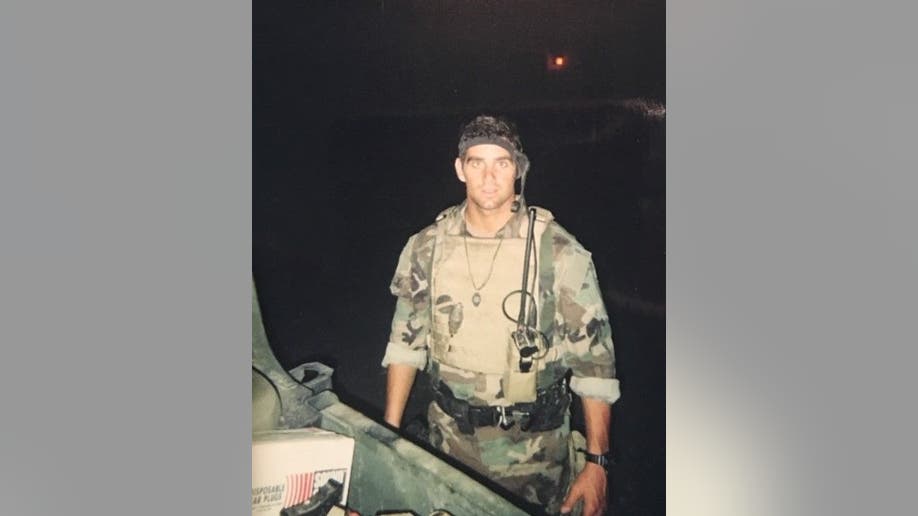
Marcus Capone during one of his seven deployments overseas as a Navy SEAL. (Marcus and Amber Capone)
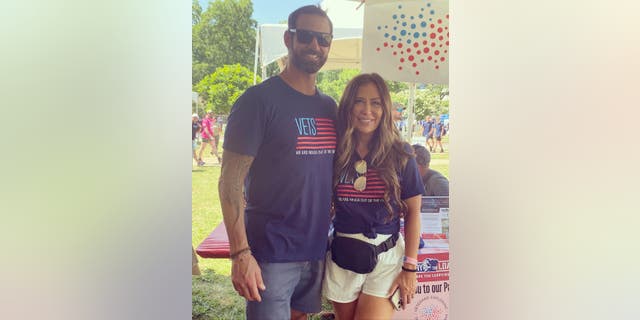
Marcus and Amber Capone founded Veterans Exploring Treatment Solutions to connect veterans with psychedelic treatments. (Marcus and Amber Capone)
A 2020 study that examined the effects of ibogaine and another psychedelic drug, 5-MeO-DMT, on 65 special operations personnel who traveled to Mexico for treatment between 2017 and 2019 found significant reductions in symptoms of PTSD, depressions, anxiety, suicidal ideation and cognitive impairment.
The researchers theorized that ibogaine “allows the evocation and reprocessing of traumatic memories and occasions therapeutic and meaningful visions of spiritual and autobiographical content, which are of central relevance in addressing PTSD-related psychological content.”
Marcus said that ibogaine forced him to confront past traumas in November 2017 that he had kept buried for years.
“These things get to the root causes of problems. They get down in your soul and kind of pull out the things that you may be struggling with,” Marcus said, noting that his experience with ibogaine moved him and his wife to start Veterans Exploring Treatment Solutions, a nonprofit that connects veterans with resources and advocates for psychedelic-assisted therapies.
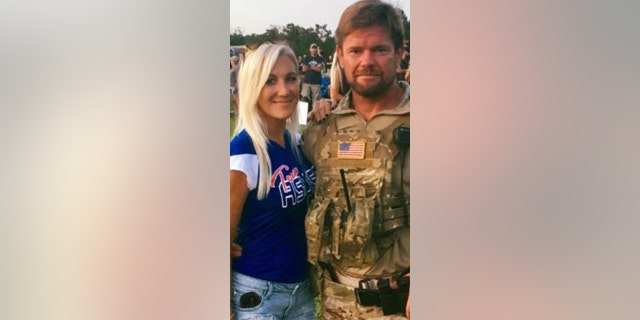
Tom and Jen Satterly founded the All Secure Foundation to help other veterans battling PTSD. (All Secure Foundation)
Tom Satterly, a 25-year U.S. Army veteran who spent two decades in Delta Force, has been at the forefront of battling PTSD through the All Secure Foundation, a nonprofit he founded with his wife, Jen, in 2019.
Like many other veterans, the Satterlys spent years cycling through mental health treatments, the most recent one taking place earlier this year when they tried 5-MeO-DMT, a drug derived from the venom of the Sonoran Desert toad.
“Nothing can touch the experience I went through with psychedelics… I found joy for the first time in 30 years,” Tom Slatterly told Fox News Digital, a sentiment that was echoed by Jen.
“Nothing can touch the experience I went through with psychedelics…I found joy for the first time in 30 years.”
“As a spouse, and someone who’s worked with thousands of warriors, I’ve seen Tom go through nine different treatments, and all of them have been valuable, and all of them have helped push the ball forward as far as healing,” Jen Slatterly said. “However, I will tell you the most significant difference I have seen in him, especially quickly, was through the 5-MeO experience.”

Banisteriopsis caapi leaves, usually known as Ayahuasca, on April 30, 2018 in Pucallpa, Peru. (Manuel Medir/Getty Images)
Ibogaine and 5-MeO-DMT are just two examples of a host of psychedelics that veterans are increasingly turning to, including psilocybin mushrooms, ayahuasca and LSD, as well as other drugs such as MDMA and ketamine.
While the drugs show promise, treatments are far from easy experiences. Phil Sussman, a U.S. Army veteran who deployed multiple times as a special operations civil affairs officer before retiring from the military in 2020, traveled to Peru in February of this year for three ayahuasca ceremonies.
“It was the hardest thing I ever did in my life, without even a close second, including everything I’ve ever done in the Army and outside as a civilian – the hardest thing I ever did, but the most rewarding,” Sussman told Fox News Digital.
“It was the hardest thing I ever did in my life, without even a close second, including everything I’ve ever done in the Army and outside as a civilian – the hardest thing I ever did, but the most rewarding.”
“It kind of lets you restart, jumpstart your system, clean you out and give you a fresh slate. I came home and finally I started to feel hopeful for the future, which I had never remember[ed] feeling, and I was able to laugh and cry and access emotions in a way I never could.”
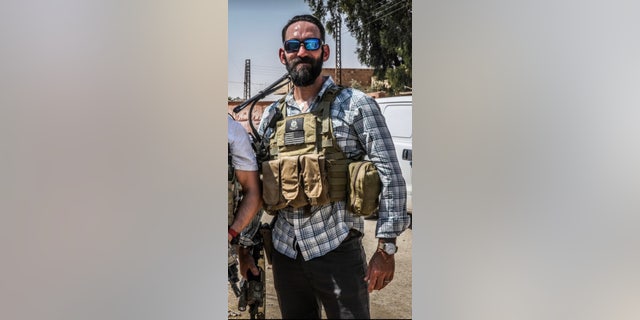
Phil Sussman during one of his deployments as a special operations civil affairs officer. (Phil Sussman)
Sussman was connected with the retreat in Peru through Jesse Gould, who completed three deployments to Afghanistan as an Army Ranger, then founded Heroic Hearts Project in 2017 after his own life-changing experience with ayahuasca.
‘MAGIC MUSHROOM’ PSYCHEDELIC MAY EASE ANXIETY, DEPRESSION
Heroic Hearts Project helps veterans access retreats in Latin America, where these therapies are available, and also provides resources for preparation and the after-care phase, which is called integration.
“You can have all the epiphanies in the world, but if you’re not going to put in the hard work and discipline afterwards, you’re probably going to fall back into old patterns,” Gould told Fox News Digital, explaining that veterans use everything from talk therapy to positive habits like yoga, meditation, and other mindfulness techniques to continue healing.
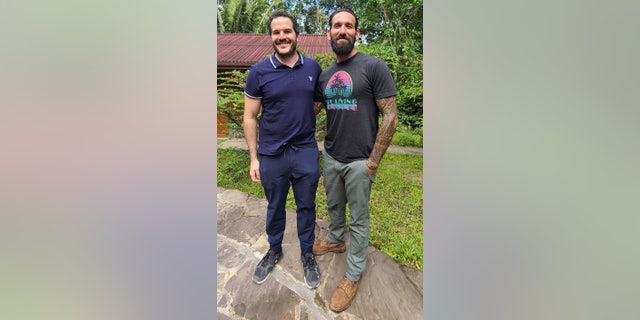
Jesse Gould, the founder of Heroic Hearts Project, and Phil Sussman, who traveled to Peru for an ayahuasca ceremony earlier this year. (Phil Sussman)
The biggest challenge for clinicians who want to study the potential therapeutic benefits is that most are classified as Schedule 1 by the FDA, which claims they have “no currently accepted medical use and a high potential for abuse.”
There are signs that the tide is shifting on acceptance of psychedelic drugs for therapeutic purposes. The FDA designated MDMA and psilocybin as “breakthrough therapies” in 2017, which expedites the study and development of drugs that “may demonstrate substantial improvement over available therapy.”

A container of Psilocybe mushrooms at the Numinus Bioscience lab in Nanaimo, British Columbia, Canada, on Wednesday, Sept. 1, 2021. (James MacDonald/Bloomberg via Getty Images)
A bipartisan consensus is also growing in Washington, D.C.

Sen. Cory Booker, D-N.J., and Sen. Rand Paul, R-Ky., introduced a bill in July that would allow terminally ill patients access to MDMA and psilocybin therapies.
Rep. Dan Crenshaw, R-Texas, teamed up with Rep. Alexandria Ocasio-Cortez, D-N.Y., to file amendments to the National Defense Authorization Act that direct the Pentagon to expand psychedelic research.
“The right and left can’t seem to agree upon anything, but what we’re noticing is that we can come together to agree upon healing,” Marcus Capone said.
“We have individuals that have gone overseas to fight for this country and fight for our freedoms – we should have the ability to treat those individuals right here in the U.S.”

Marcus and Amber Capone with Rep. Dan Crenshaw on Capitol Hill. (Amber and Marcus Capone)
For many veterans lobbying for increased federal funding and access to psychedelics, time is of the essence.
There were 6,146 veteran suicides in 2020, which comes out to nearly 17 every day, a rate that is 57.3% higher than for non-Veteran adults, according to a VA study released in September. A study conducted by the nonprofit America’s Warrior Partnership and researchers at the University of Alabama and Duke University found that the actual suicide rate could be double what the VA is reporting.
Among those who died from suicide, more than a third had been diagnosed with depression and 24.4% had been diagnosed with PTSD, the VA reports.
“I don’t think that our government is ready for the tidal wave of need that is approaching in post 9/11-era veterans. For 20 straight years, some of these individuals have been deploying and fighting for this nation, and I think as a nation, we can do a much better job taking care of them than we currently do,” Amber Capone said.
“For 20 straight years, some of these individuals have been deploying and fighting for this nation, and I think as a nation, we can do a much better job taking care of them than we currently do.”
In a statement to Fox News Digital, the Department of Veterans Affairs said, “the VA continues to lead the nation in its PTSD research efforts, and will continue to look at various forms of treatment that results in best outcomes for Veterans.”
The FDA did not respond to a request for comment.

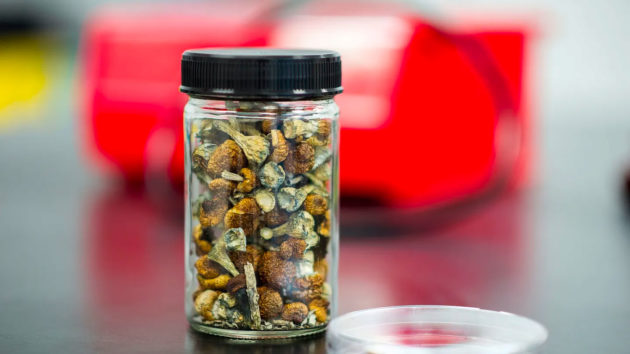
Leave a Reply
You must be logged in to post a comment.